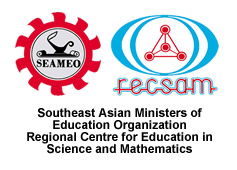Learning Science and Mathematics (LSM) Journal Vol.1, Issue 18, pp 1-15
ASSURing Science Learners’ Participation in STEM Education: Exemplary Physics Lesson to Promote TVET
Chia Pau Ling, Tew Mei Yin, Ng Khar Thoe, Kamalambal Durairaj, Pang Yee Jiea & Yaro Umar
Received first draft 28th June 2023. Received reports from first reviewer (30/6); second reviewer 21/8).
Received revised draft 20 November.
Accepted to publish 18 December 2023.
Abstract
Purpose and Research Question - Learners’ active participation in STEM education has become an important factor in a student-centred learning environment. ‘Analyzing’ learner characteristics by ‘Stating’ objectives can assist science educators to ‘Select’, modify or design and ‘Utilize’ materials suitable for classroom teaching and learning activities. This article illustrates an exemplary Physics lesson developed through ASSURE instructional model to promote ‘Technical & Vocational Education and Training’ (TVET) as part of bigger scale project-based programmes ‘Requiring’ learners’ responses in their STEM-based learning experience integrating Arts/reading/culture with ‘Evaluation’ of their learning outcome or project output.
Methodology – In this qualitative study, ASSURE instructional model is used as a guide to develop a modular approach of STEM-based learning exemplar to study Physics concepts such as Pascal’s principle, hydraulic system, and pressure transmitted in an enclosed fluid, to name a few with evidence of output illustrated through ‘Within- and/or Exemplary-Case Analysis’. The learning output of the secondary students guided by teachers (who are the first and second co-authors of this paper) was submitted to the ‘’ (LearnT-SMArET)(2021-22) e-course series, a platform initiated by the third author to promote a project-based programme since 2018. The projects prepared by students were submitted for evaluation using the Rubric designed as an alternative assessment for LearnT-SMArET programme under the category of ‘Technical & Vocational Education and Training integrating Entrepreneurship Education’ (TecVoTEE) that is one of the most recently initiated sub-theme under the ‘Learning Science and Mathematics Together in a Borderless World’ [LeSMaT(Borderless)] ‘Basic Education and Student Networking’ activities to fulfil SEAMEO Education Agenda Priority Area No. 5 (Revitalising teacher education) and No. 7 (Adopting a 21st-Century Curriculum)(SEAMEO, 2018) as well as Sustainable Development Goals (SDGs) No. 4 (Quality education) and No. 17 (Partnership in achieving goals) (UN, n.d.).
Findings – The data revealed the following qualitative findings from observation, interview and document analysis: (1) Students were able to prepare project output related to TVET, one of which is entitled ‘Pascal’s principle by using a hydraulic lift as an example’. (2) Project team members had developed self-directed/paced/accessed learning with enhanced interest and competency to showcase learning output related to STEM integrating Arts-language culture (STEAM) education. For example, they were able to verbalize their learning experience with write-up of reflective journals that could be extracted for module writing by the authors of this paper.
Significance and Contribution in Line with Philosophy of LSM Journal - This paper contributes by illustrating secondary science learners’ active participation following the modular approach of STEM-based learning exemplar to study Physics concepts. The exemplar case presented suggested that considering learners’ capability and their motivation level to participate actively in the science classroom could better ASSURE the achievement of governmental aspirations to promote TVET education in line with global trends to prepare ‘Future-Ready’ workers towards the Industrial Revolution (IR) eras.
Keywords: ASSURE instructional model; Pascal’s principle; Hydraulic lift; TVET education; LearnT-SMArET; LeSMaT(Borderless)
© 2023 SEAMEO RECSAM LSM Journal
More Article
...

